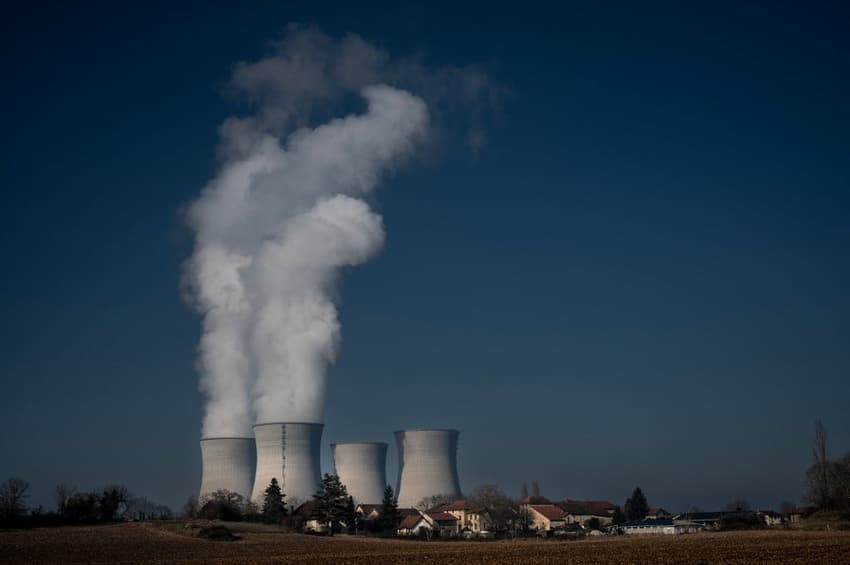France extends shutdown of four nuclear reactors amid corrosion problems

French electricity group EDF has announced that shutdowns of four nuclear reactors would be extended for several weeks because of corrosion problems, potentially putting more pressure on prices as winter approaches.
France generates some 70 percent of its electricity from a fleet of 56 reactors, but 32 are currently offline either for routine maintenance or to evaluate the corrosion risks.
EDF said the stress corrosion -- which produces tiny cracks -- was found at four sites near welds on pipes of cooling circuits that are crucial in case of shutdowns or accidents, prompting shutdowns and inspections of eight similar reactors.
The four reactors are now set to resume output between November 1st and January 23nd.
Overall output for 2022 is now expected at the lower end of its forecast of 280 to 300 terawatt-hours (TWh), an EDF spokesman told AFP.
If its own production is insufficient for France's needs, EDF imports electricity from elsewhere in Europe, where prices are soaring as Russia clamps down on exports of natural gas, also a main source for electricity.
The emergency work added to the financial woes of the heavily indebted state-controlled company, which the government now plans to fully nationalise as it moves to relaunch France's nuclear industry.
President Emmanuel Macron called earlier this year for the construction of up to 14 new reactors to power the country's transition away from fossil fuels.
Customers in France have so far escaped the soaring utility bills seen across much of Europe thanks to the government's price cap, although this currently runs only until the end of the year.
Comments (2)
See Also
France generates some 70 percent of its electricity from a fleet of 56 reactors, but 32 are currently offline either for routine maintenance or to evaluate the corrosion risks.
EDF said the stress corrosion -- which produces tiny cracks -- was found at four sites near welds on pipes of cooling circuits that are crucial in case of shutdowns or accidents, prompting shutdowns and inspections of eight similar reactors.
The four reactors are now set to resume output between November 1st and January 23nd.
Overall output for 2022 is now expected at the lower end of its forecast of 280 to 300 terawatt-hours (TWh), an EDF spokesman told AFP.
If its own production is insufficient for France's needs, EDF imports electricity from elsewhere in Europe, where prices are soaring as Russia clamps down on exports of natural gas, also a main source for electricity.
The emergency work added to the financial woes of the heavily indebted state-controlled company, which the government now plans to fully nationalise as it moves to relaunch France's nuclear industry.
President Emmanuel Macron called earlier this year for the construction of up to 14 new reactors to power the country's transition away from fossil fuels.
Customers in France have so far escaped the soaring utility bills seen across much of Europe thanks to the government's price cap, although this currently runs only until the end of the year.
Join the conversation in our comments section below. Share your own views and experience and if you have a question or suggestion for our journalists then email us at [email protected].
Please keep comments civil, constructive and on topic – and make sure to read our terms of use before getting involved.
Please log in here to leave a comment.